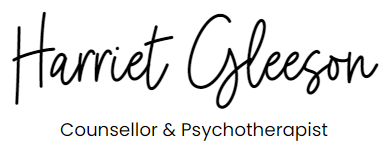therapy for work-related stress and burnout
What is work-related stress?
Stress is a natural response to challenges or demands that we encounter in our daily lives. When we experience stress, our bodies release hormones like adrenaline and cortisol, which prepare us to respond to threats. Whilst a moderate amount of stress can be motivating and help us stay focused, excessive stress can lead to anxiety, fatigue, and burnout.
Sources of stress at work include:
➜ Excessive workload, expectations to work outside of contracted hours and tight deadlines.
➜ Micromanaging from senior staff or lack of autonomy over work tasks.
➜ Challenging relationships with colleagues, toxic work culture, bullying or poor team morale.
➜ Feeling isolated when working remotely.
➜ Colleagues competing with you rather than collaborating.
➜ Job insecurity or feeling trapped and unfulfilled in your current role.
➜ Imposter syndrome, feeling undeserving of success and fearing being ‘found out’.
➜ Difficulties managing neurodiversity with the neurotypical expectations from management and lack of support.
➜ Having the ‘dream job’ but still feeling unsatisfied or that something is missing.
Burnout
Burnout emerges due to a disconnect between the mind and body resulting in chronically unmet needs. There is a famous quote that says, if you do not listen to your body when it whispers, you will be forced to stop when it screams - this is the stage of burnout.
Common signs of burnout include:
Emotional Exhaustion: Feeling drained, overwhelmed, anxious or unable to cope with daily tasks.
Cynicism or Detachment: Developing a negative or indifferent attitude toward your work, colleagues, or responsibilities.
Reduced Performance: Struggling to concentrate, feeling unproductive, or lacking motivation to complete tasks.
Physical Symptoms: Experiencing headaches, gastrointestinal issues, brain fog, memory loss, or changes in sleep patterns.
Irritability: Increased frustration or anger over small issues, leading to conflicts in relationships.
Isolation: Withdrawing from social interactions, both at work and in personal life.
Sense of Ineffectiveness: Feeling a lack of accomplishment or self-worth, questioning your abilities and contributions.
Neglecting Self-Care: Ignoring your own needs, such as exercise, nutrition, and leisure activities that you enjoy.
you are more than being busy
In today’s society, overworking is glorified with busyness and productivity being seen as a badge of honour for many people to the point that it can become their whole identity.
Maybe you resonate with this and:
➜ Cram your schedule with commitments in an attempt to achieve everything all at once but then find you cannot do your best in any of them which keeps you trapped in a cycle of trying to push harder through the exhaustion.
➜ Find it hard to delegate tasks to others and let go of control to not appear ‘weak’ or prove your dedication.
➜ Brag or compete with others about how busy you are, how long your to-do list is or how many hours you have worked.
➜ Equate constant activity as a measure of your worth, success or importance.
➜ Feel anxious or not good enough when you are not doing something ‘productive’
➜ Prioritise achievement above downtime with this being seen as a luxury rather than necessary.
For many people experiencing burnout and struggling with their work/life balance, it can feel difficult to know how to break the cycle because it can feel like there is too much to do to have the breathing space you desperately need.
Having experienced periods of burnout and chronic fatigue myself many years ago that led me to taking time off on long term sick; I understand these challenges and can help you make the necessary changes to reclaim your energy, restore your wellbeing, and create a more balanced, fulfilling life.
I now see success in the slow life, and i can support you to feel content and find fulfilment with a more intentional way of being.
It’s not a weakness to ask for help and you don't have to go through this alone.
“You can do anything, but not everything.”
- David Allen
my approach
I have a two-part approach to working with stress and burnout:
1. The here and now (managing burnout symptoms)
➜ Recognising the warning signs of when burnout is approaching using the polyvagal ladder and becoming more connected to your body and what it’s telling you.
➜ Increase awareness of your needs, practice communicating them and setting boundaries with others to improve your work/life balance.
➜ Coming to an acceptance that your current way of life (working long hours etc) is not sustainable.
➜ Understanding that excessive workloads are a failure of the organisation who are expecting too much, not a failure of you and that you don’t have to keep pushing through or trying harder.
➜ Identifying immediate changes you can implement to reduce current pressures and demands.
➜ Having your feelings in a non-judgemental space about how difficult things are right now.
➜ Develop healthy coping strategies and build resilience.
2. The past (understanding the root causes)
➜ Uncover any unresolved issues or feelings you are avoiding, such as grief, anxiety or shame - this drives a compulsive energy to ‘do’ (work, exercise etc) rather than to be with them and feel them when you stop.
➜ Making connections to childhood - often those who have adopted the persona of the ‘good girl’ and have had to work hard in relationships to please parents can repeat this with other authority figures at work.
➜ Breaking patterns of relating and no longer needing to use work or taking care of others for secondary gains to compensate for unmet needs in childhood (e.g. to feel wanted, worthy or loved).
➜ Healing your inner child so that you no longer seek external validation from others.
arrange a free call
Interested in working together? Fill in the form below and I will be in touch with you shortly. I can't wait to hear from you!





